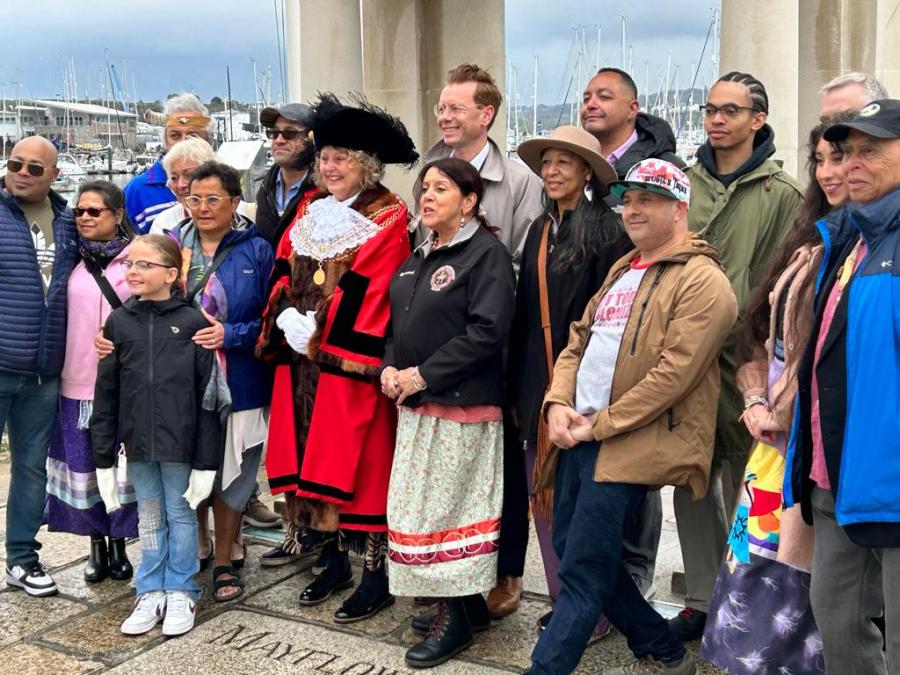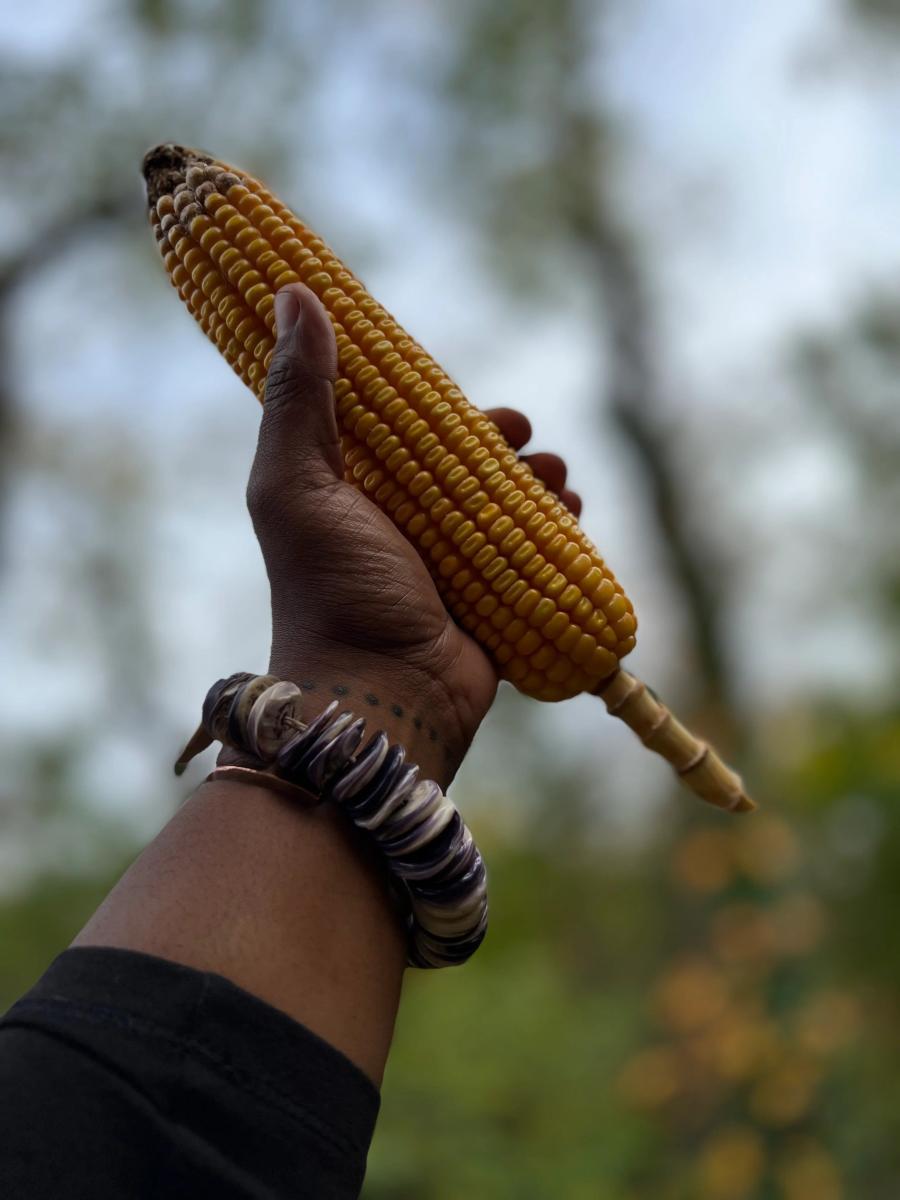Cultural Survival in the Americas Conference: Education and Outreach. Program
On May 22, 1996, in the first "Cultural Survival in the Americas Conference" 80 students from two Boston area schools became the newest contributors in Cultural Survival's 25-year mission to work for and with indigenous peoples as they fight for self-determination and basic human rights. As part of Cultural Survival's pilot program on indigenous peoples in the Americas, these students came together for a day at Boston College to share their reflections and contribute their insight to the debate on the future of indigenous peoples. Thanks to the efforts of a team of dedicated educators and activists, what began as a skeleton draft of curriculum ideas culminated in a unique opportunity for students to connect education and action.
Since 1991, the Education and Outreach Department of Cultural Survival has been tasked with bringing the work of the organization to the public through classroom materials and larger-scale educational events. In the Fall of 1995 Cultural Survival embarked on its first formal classroom partnerships, joining with two local secondary schools to pilot sections of its most recent project, "The Curriculum Resource Program on Indigenous Peoples of the Americas."
The Program itself is built on the premise that everyone has much to gain from the investigation of cultures different from their own. As society increasingly reflects the complexity of socio-cultural diversity around the world, it becomes crucial to address cultural difference in formal education. Traditional social studies curricula introduce students to the past: to the contacts between peoples; the conditions of political development as boundaries change, wars erupt and subside, and resources exchange hands. What is often left unexplored is the legacy of these histories on the First Peoples.
The Curriculum Resource Program on Indigenous Peoples is designed to fill this gap by bringing the current issues and voices of First Peoples into the classroom. Through case studies using real projects and addressing real concerns of the indigenous groups Cultural Survival works with and for, its aim is to offer a new perspective on diversity, minority groups and the choices they face, as well as the part we may all play in determining the future of plural societies.
Cambridge Rindge and Latin's Pilot School, the oldest alternative public high school in the country, and the Beaver Country Day School, a private 6-12 grade college preparatory school, are both actively contributing to the evolution of this program. With innovative curriculum at the heart of each school's mission, these schools have been excellent partners in Cultural Survival's collaborative educational efforts. The "work-in-progress" environment of this partnership has allowed Cultural Survival to test materials and discover how best to integrate these issues into the classroom. From a draft of curriculum ideas focusing on Cultural Survival's Special Projects program and the international indigenous movement, Cultural Survival has created two units focusing on regions in the Americas.
Ninive Clements, working with Margaret Von Gonten, K-12 Coordinator of Social Studies and Betsy Grady, Anthropology and Social Studies teacher, introduced their Latin American Studies and World History classes to the Maya, both past and present, using Cultural Survival's case study material on grassroots projects in highland Chiapas. In particular, students examined the efforts of the writer's cooperative, Sna Jtz'ibajom, to revive Maya languages and broaden the educational mandate in Mexico. Students were also challenged to consider current resource management initiatives in the Amazon by the Macuna people of Colombia.
At the Beaver Country Day School, history teachers Peter Gow and Ben Gregg presented a fresh look at contemporary Native Americans to their ninth grade World History students. Through a comprehensive introduction to topics such as Tribal Recognition, Indian Gaming, and Religious Freedom, students discovered, or perhaps rediscovered, that Native Americans are active and dynamic contributors to society, each with his own distinct cultural identity, yet sharing common concerns with the others.
While each of the classes focused on regional case studies, the final conference was an opportunity to bring the students together to explore common issues for all indigenous peoples. More importantly, the conference provided a chance for the students' voices to be heard. This combined academic forum not only underscored the reality of these issues, lifting them from the pages of textbooks, but it also illustrated the value of different points of view in solving complex problems.
David Maybury-Lewis, President and Founder of Cultural Survival, opened the conference with an introduction to the origins and progress of Cultural Survival's mission. Through small discussion groups, theme paper presentations and opportunities to discuss concerns with Cultural Survival representatives, students worked to sort out essential questions about conflicting economic needs, religious freedom and self-determination. Nimachia Hernandez, a Doctoral Candidate at the Harvard Graduate School of Education, provided a first-person perspective on the importance of indigenous issues in mainstream education, which was easily the conference highlight according to the students.
With an underlying theme of personal responsibility and action, the students were challenged to regard this experience not as a conclusion but as a beginning. Many took home a heightened sense of awareness and some discovered a new commitment to the issues. Overall, the conference achieved its intended goals: connecting students to activism and broadening perspective through collaboration. In the words of one student, "I feel as if I have a lot more things to go home, think about, and work with than I ever have with these issues before."
With the success of this initial pilot phase, Cultural Survival is furthering the awareness of refining the program and working towards making it available to a larger audience. In 1996-97 we will begin our second pilot phase, incorporating new materials and building on knowledge gained. Today in 1996, Native populations across the globe still do not enjoy full participation in governments that claim jurisdiction over their ancestral lands. Only through greater collaboration can the message of the indigenous struggle reach a wider audience. Our education initiative is one of the strongest weapons we have in this ongoing battle. As one student urged, "I wish all schools could have this chance to fight the ignorance that people have."
The Department welcomes any comments or questions concerning the Curriculum Resource Program and any other activities. If you would like to support the project in any way, please contact Nicole Thornton-Burnett in the Education and Outreach Department. Article copyright Cultural Survival, Inc.


